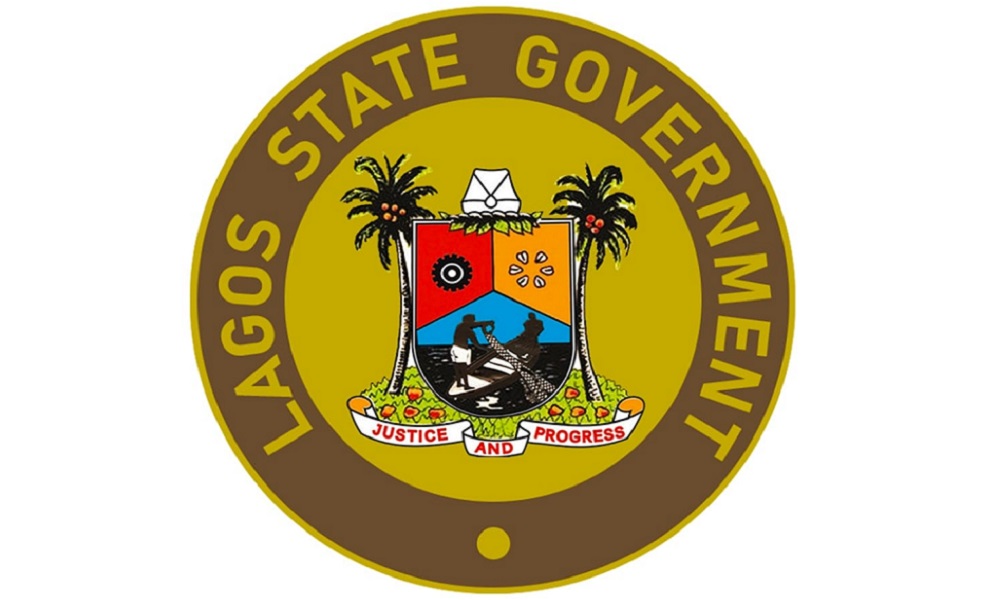News
LASG Issues Registration Ultimatum To Danfo/Korope Drivers

The Special Adviser to the Governor on Transportation, Sola Giwa, said the move aligned with the Strategic Transportation Master Plan for Lagos State.
The Lagos State Government has issued a two-week registration notice to all public transport drivers (Korope/Danfo bus drivers), as it releases the restructuring plans to improve commuting experience.
Speaking at a meeting with bus operators and Union leaders in the State, the Special Adviser to the Governor on Transportation, Sola Giwa, said the move aligned with the Strategic Transportation Master Plan for Lagos State.
Giwa described the current state of bus operations on the corridor as chaotic hence, the need for collaboration to successfully regulate and integrate the informal transport sector into the State’s Bus Reform Initiative using Lekki/Epe corridor as a pilot test.
He further explained that the Lekki Epe Corridor had been inspected by the Ministry of Transportation and Lagos Metropolitan Transport Authority, to identify limitations of seamless traffic flow along the expressway and adjourning roads, and had mapped out systematic framework to address these challenges.
Some of the planned solutions according to the transportation special adviser include; the restructuring of the existing unregulated public transport bus operations on the Lekki Epe Corridor, deployment of high-capacity buses on the corridor as stated in the Lagos Transport Policy and the Bus Route Network, re-allocation and relocation of Korope/Minibuses to inner route, re-registration and recertification of all buses.
Others added are; the Introduction of an E-ticketing System, Provision of transport infrastructure (Layby, terminal etc.), Regulation and Standardisation of Bus operations, improved Transportation Services i.e. Safety and Passenger Comfort and promote the security of lives and properties along the Lekki-Epe corridor.
Giwa further stated that the restructuring plan will be implemented in phases, urging transport operators who intend to key into the restructuring program, to come to the Ministry of Transportation to register within the next two weeks. He added that the registered operators will be allotted routes by the ministry to ensure strict compliance with the strategy.
The special adviser also warned that any operator who contravenes the regulations that will be implemented, will be fined and will forfeit their vehicles if they ignore the notice of their fines. He declared that the state government will not accommodate willful disregard of its existing Transport Sector Reform Law.
Addressing the concerns raised by members of the unions, the Permanent Secretary of the Ministry, Olawale Musa, explained that the state government is counting on them to fish out unregistered operators along the Lekki-Epe Corridor, affirming that Lekki –Epe expressway would be a pilot test for the standardisation of the transportation system in Lagos.
Earlier in the meeting, the Head of Bus Services Lagos Metropolitan Area Transport Authority (LAMATA), Dr Amure, stated that the rapid development of the Lekki/Epe axis was one of the reasons the state government chose the corridor to continue its Bus Reform Initiative, which started with the introduction of the Bus Rapid Transit in different parts of the State.
The Special Adviser, Hon Sola Giwa, Permanent Secretary, Olawale Musa, Acting Chairman National Union of Road Transport Workers, NURTW, Alhaji Mustapha aka Sego and Deputy Chairman Road Transport Employers Association of Nigeria RTEAN, Alhaji Taofeek Ajayi signed a communique at the end of the meeting to affirm their support of the restructuring initiative.
News
Just in: Shettima jets out to attend Senegal’s independence

Vice President Kashim Shettima has departed Abuja for Dakar, Senegal for official assignment.
The VP is expected to represent President Bola Ahmed Tinubu at the West African nation’s 65th Independence Anniversary celebrations.
Senegal marks its Independence Day on April 4 each year, commemorating its liberation from French colonial rule in 1960.
The annual celebration is a significant event featuring national parades, cultural displays, and ceremonies highlighting the country’s achievements and unity.
A statement issued on Thursday by Senior Special Assistant to the President on Media and Communications, Office of the Vice President, Stanley Nkwocha, said Shettima’s participation followed an official invitation from Senegalese President, Bassirou Diomaye Faye.
This underscored the strong diplomatic and economic ties between Nigeria and Senegal.
The two nations share longstanding relations, particularly within the Economic Community of West African States (ECOWAS), fostering cooperation on regional security, trade, and development initiatives.
The event is expected to reaffirm Senegal’s commitment to democratic governance and regional cooperation.
Vice President Shettima is scheduled to return to Nigeria immediately after the one-day celebrations, continuing his engagements in national development and diplomatic outreach.
News
Just in: “Ignore rumour mongers, there was no time I collapsed “-Wike asserts

Federal Capital Territory FCT minister, Nyesom Wike on Thursday dismissed social media reports that he collapsed last week, describing the reports as the handiwork of rumour mongers trying to score cheap political points.
Wike spoke after he inspected four ongoing projects in the territory, including the International Conference Centre ICC.
News
CJ transfers Natasha’s case to Justice Nyako

The Chief Judge of the Federal High Court, Justice John Tsoho, has reassigned the suit filed by Senator Natasha Akpoti-Uduaghan against Senate President Godswill Akpabio and others to Justice Binta Nyako.
The case, which was initially handled by Justice Obiora Egwuatu, will now be heard afresh by Justice Nyako following Egwuatu’s withdrawal from the matter. His decision came after allegations of bias were reportedly raised by Akpabio, the third defendant in the suit.
Justice Egwuatu withdrew from the case on March 25, citing concerns over judicial integrity.
“Justice is rooted in confidence in the court. Once a litigant expresses his belief that there is bias or likelihood of bias on the part of the judge, it will not be in the interest of justice for the judge to continue,” he stated.
He forwarded the case file to the Chief Judge for reassignment.
Senator Akpoti-Uduaghan, who represents Kogi Central Senatorial District, had filed the lawsuit to halt an investigation into her alleged misconduct by the Senate Committee on Ethics, Privileges, and Public Petitions. She had sought an interim injunction to prevent the committee from proceeding with disciplinary actions against her.
Justice Egwuatu previously issued an order on March 4 declaring Akpoti-Uduaghan’s suspension by the Senate null and void. However, on March 19, he set aside a portion of his ruling after hearing arguments from both sides. The Senate had filed a motion urging the court to vacate the order, arguing that it interfered with its legislative duties and could lead to a constitutional crisis.
During legal proceedings, the Senate’s lawyer, Chikaosolu Ojukwu, argued that the court’s order restrained the Senate from fulfilling its constitutional responsibilities, while Akpoti-Uduaghan’s counsel, Michael Numa, opposed the motion, describing it as a disregard for the court’s authority. He urged the court to dismiss the Senate’s application and take disciplinary action against the defendants for contempt.
Akpoti-Uduaghan also filed a contempt charge, asserting that her suspension was a deliberate violation of the court’s interim injunction. She maintained that the court’s directive was duly served on the defendants, but they proceeded with actions in defiance of the ruling.
Nigeria’s 1999 Constitution (as amended) grants the National Assembly the authority to manage its internal affairs, including disciplining its members. However, this power is not unlimited. It must be exercised in accordance with constitutional provisions, due process, and the rule of law.
The principle of separation of powers, outlined in Section 4 for the legislature, Section 6 for the judiciary, and Section 5 for the executive, ensures that each arm of government functions independently without interference. However, courts have the authority to review legislative actions if they infringe on fundamental rights or violate existing laws.
Judicial rulings have established that while legislatures hold disciplinary authority, their actions must align with the principles of natural justice, particularly the right to a fair hearing, as outlined in Section 36 of the Constitution. The outcome of this case could clarify the extent of legislative immunity and determine whether courts can override Senate disciplinary actions when due process is at stake.
-

 News6 hours ago
News6 hours agoNatasha: Kogi PDP hammers Ododo, reiterates unfeigned support for her
-

 News13 hours ago
News13 hours agoRivers APC demands Fubara’s probe over ex-HoS allegations
-

 Economy5 hours ago
Economy5 hours agoSEE Black Market Dollar To Naira Exchange Rate Today 3rd April 2025
-

 News4 hours ago
News4 hours agoJust in: INEC dumps recall petition against Sen Natasha
-

 Economy14 hours ago
Economy14 hours agoNaira rebounces against the dollar in parallel market
-

 News6 hours ago
News6 hours agoUS cancels ex- president ,Nobel Peace Prize winner Oscar Arias visa
-

 News1 hour ago
News1 hour agoJust in: “Ignore rumour mongers, there was no time I collapsed “-Wike asserts
-

 News9 hours ago
News9 hours agoJust in: Finally, Trump imposes 14% tarriff on Nigeria oil, others





